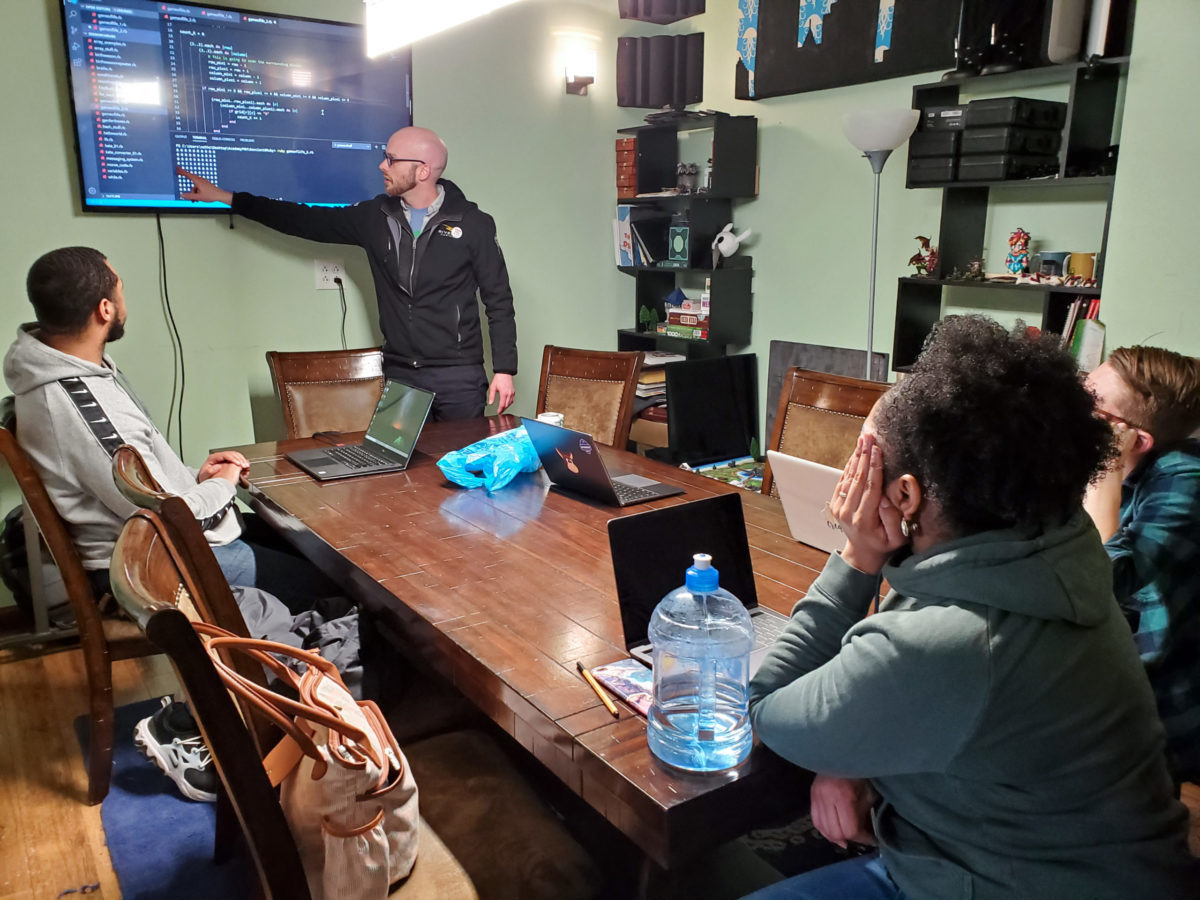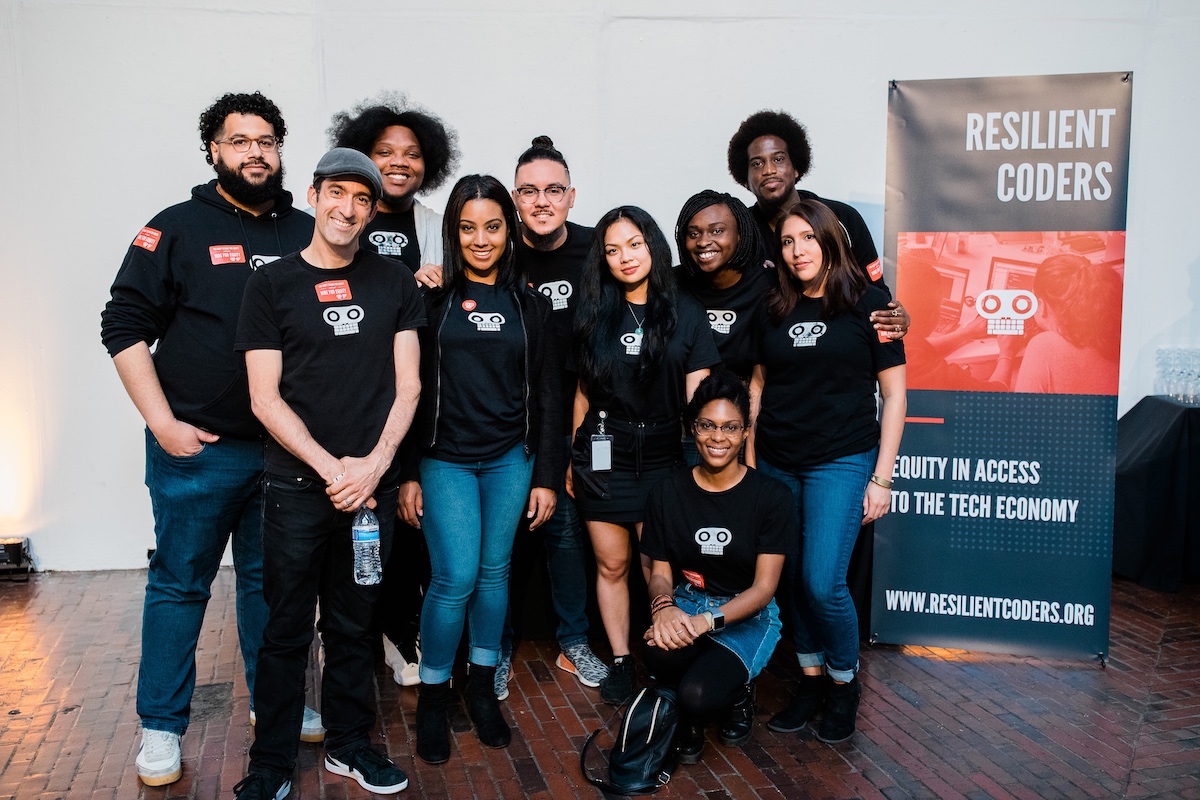
This editorial article is a part of How to Get a Tech Job Month of Technical.ly's editorial calendar. This month’s theme is underwritten by Flatiron School. This story was independently reported and not reviewed by Flatiron before publication.
Wondering what skills you need to land a job in the Pittsburgh tech industry today?
Local tech training leaders have the answers. Technical.ly reached out to three local coding bootcamp directors to find out what the most common coding languages in the industry are, and what tech employers are looking for today. Below are three questions Technical.ly sent to the directors of Academy Pittsburgh, Resilient Coders and Tech Elevator, all of which have relationships with Pittsburgh employers in software development.
Particularly amid the economic shifts of the COVID-19 pandemic and the more recent trend of The Great Resignation, more and more people are looking to transition their careers into tech, even if they have no prior experience in the industry. For those considering a bootcamp or looking to learn a new language on your own, here’s what leading educators in the space told us (via email) about preparing for a career in software development. Responses were lightly edited for length and clarity.
What are the top 3 programming languages or frameworks you’re teaching and why?
John Lange, Academy Pittsburgh: We teach C#, Ruby, and JavaScript as our primary languages, with SQL as a fourth. JavaScript is by far the most popular in the job market currently. If you’re working on web applications, you’re using Javascript, and even if you’re working on phone apps, you’re probably using JavaScript. We’ve found in Pittsburgh that C# is very popular with big corporations, and it is also so similar to Java that learning one makes you ready to work in the other, so C# covers two large sections of the Pittsburgh job market. Finally, we teach Ruby because, while it is losing popularity in Pittsburgh as a language (although the Cultural Trust and other large Pittsburgh institutions still use it), it is very similar to Python so it is an easy jump between those languages.
David Delmar Sentíes, Resilient Coders: We teach object-oriented programming [OOP] principles through the lens of full-stack JavaScript. Our expectation is that people will have to learn a new language or framework on the job. So we spend a lot of time on general OOP skills, so we’re not locking anyone into a particular language. That said, we can’t *only* do general OOP principles. We spend most of our time on JavaScript, including Node and React. This seems to be in high demand.
Jennifer O’Brien, Tech Elevator: We teach Java & .NET programming languages. Both are powerful, popular languages in the Pittsburgh market and a great place for beginners to start. With either of these languages, you can land a job as a software engineer, business analyst, data analyst or DevOps engineer—which are all in high demand right now.

Academy PGH developer bootcamp students in a small group session. (Courtesy photo)
What technical skills do the employers you work with value most right now? Have those changed since before the pandemic, and do you expect them to change in the next year?
John Lange, Academy Pittsburgh: On paper, the technical skills employers are looking for are data structures, or API calls. However, once students get into the job, being able to learn new things is by far the most important skill. Not much has changed on the technical needs due to the pandemic, but hiring in general has shifted, mostly due to companies trying to recover from having a hiring freeze through all of 2020. I think next year, one of the biggest changes that will hit the industry is on the management side. Managers will need to learn to lead better remotely. Not sure if that’s a technical skill or not, but it’s definitely going to be really important if companies want to retain developers in the coming years.
David Delmar Sentíes, Resilient Coders: We haven’t seen the pandemic influence meaningful changes in the technical skills our grads need to have. We have, however, seen the pandemic drastically change the non-technical skills people need to have. I’m not just talking about our alumni. It’s actually a bigger issue with managers — particularly managers who are early in their managerial careers. The pandemic has brought about a sharp increase in micromanagement, and a decline in interpersonal relationship-building.
Jennifer O’Brien, Tech Elevator: We seek feedback from our hiring partners regularly to ensure the skills we are teaching are those that are being used in the industry. Since the pandemic started, our campuses have been operating in a live-remote format, which really prepares students for onboarding and working remotely. Our Pathway Program Director said in a recent article: Transferrable skills are one of the biggest reasons that hiring managers continue to hire graduates from Tech Elevator.
Hiring managers understand that by hiring career changers, they are not getting someone right out of college who hasn’t been in the workforce. Instead, they’re getting someone who’s more mature and has a certain level of professional experience. Transferable skills, whether communication skills from working in the food industry or leadership skills from working as an office manager, make a difference when becoming a software engineer. This makes our graduates not run-of-the-mill software developers with CS degrees, but developers with unique skillsets.

Resilient Coders students and staff. (Courtesy photo)
Once students leave a training or bootcamp, where can they go to continue practicing and honing technical skills outside of their job?
John Lange, Academy Pittsburgh: Students should be connected to the groups that are around like Code and Supply, Women in Tech Pittsburgh, their local bootcamp’s community, local makerspaces, or come to Academy Pittsburgh events. Our events are open to anyone, and we’re happy to involve others into our community.
David Delmar Sentíes, Resilient Coders: I’m excited about Women in Tech PGH, and I’m sure there are other wonderful communities as well. Our own alumni tend to stay involved, so we also have a tight community across our cities.
Jennifer O’Brien, Tech Elevator: Some of the communities in Pittsburgh include the Pittsburgh Technology Council, Code & Supply, Build412 Tech, GetWitIT.
Sophie Burkholder is a 2021-2022 corps member for Report for America, an initiative of The Groundtruth Project that pairs young journalists with local newsrooms. This position is supported by the Heinz Endowments.Join the conversation!
Find news, events, jobs and people who share your interests on Technical.ly's open community Slack





